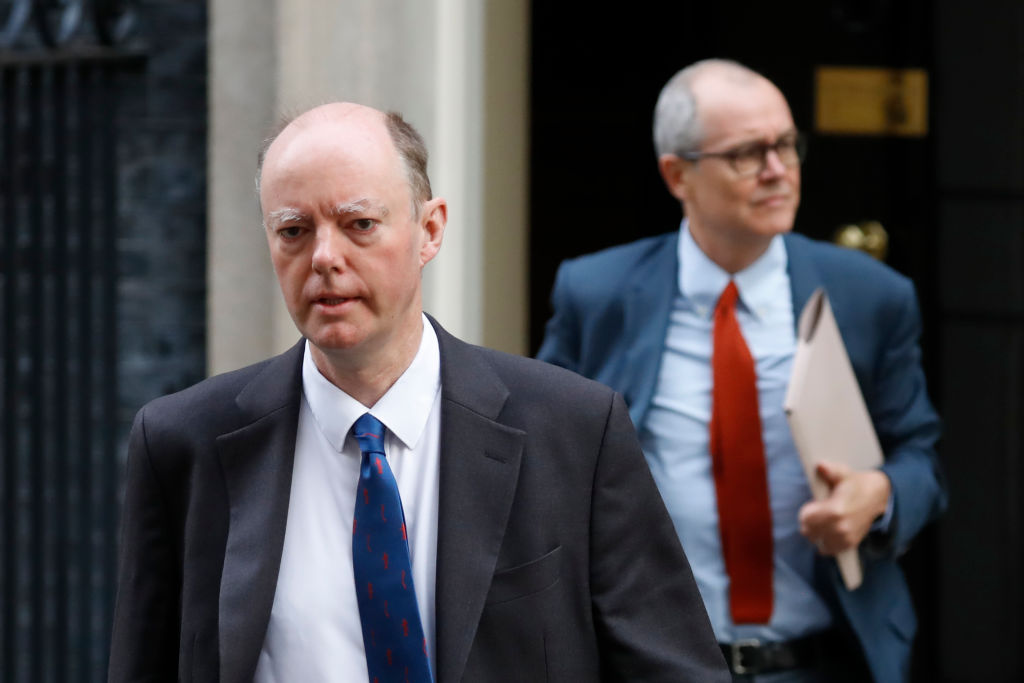Something very significant happened during Boris Johnson’s national address this week. It was not the announcement of the new three tier local risk-based system of restrictions – imaginatively titled medium, high and very high.
It was what didn’t happen. The Prime Minister resisted applying a ‘circuit break’ national lockdown which it now transpires was being pushed by the government’s scientific advisors (Sage). In doing so, he rejected this most blunt of tools as a means of controlling this pandemic.
I do not know how close the Prime Minister was to calling for a national lockdown. But the over-reach from his scientific representatives Chris Whitty and Patrick Vallance, during their televised presentation three weeks ago provided him, I believe, with the opportunity to for the first time to start to properly form an independent policy that differed in substance from the scientific zealots in Sage, who value Covid-19 suppression above any other health and economic concerns. And so the three tier policy was born.
Any attempt to steer a ‘middle path’ in a polarised world is a lonely choice. Look at Jeremy Corbyn’s Labour and their tortured Brexit policy last year. You ultimately please no one. The released minutes from Sage’s 21 September meeting, in which they called for a short lockdown as a way to potentially save lives, exposes the government to the charge that its ‘inaction’ may cost lives. On the other side, lockdown-sceptics generally view the additional and rather arbitrary imposition of further restrictions in the new tiered approach as a further attack on freedom. But it must be added, just because you do not please everyone does not mean the policy is wrong.
In the current climate, with positive cases and admissions rising particularly in large areas of northern England, a reduction in restrictions was never on the cards. The imposition of pockets of restrictions in many areas of the country was proving confusing, not least to the Prime Minister (who could not remember the restrictions in one interview). By not implementing the circuit breaker lockdown though, the government signalled two things. First, it suggested that it might not be convinced that lockdowns actually work. And second, it suggested that it was perhaps losing confidence in its own scientific advisors.
This potential shift follows the World Health Organisation (WHO) moving towards a similar position, imploring developed nations not to use lockdown as a first resort to control infections. There have also been reported visits of lockdown-sceptics such as Anders Tegnell and Carl Heneghan to speak with the Prime Minister’s team. In addition, it can’t have escaped the notice of those in government that measures previously advised by Sage and dutifully implemented as policy over recent months almost never appeared to work.
When Boris Johnson failed to announce the circuit-breaker on Monday and instead put into place a new policy which did not have the approval of Sage this showed the government is now prepared to govern rather than ‘follow the science’. It is a high-risk strategy but very necessary. The scientists that make up Sage have unfortunately got too many things wrong and have shown themselves incapable of properly weighing up all health concerns. They are too focused on viral suppression at all costs.
Time will tell as to the merits of the three-tier approach. It must be given sufficient time to work with regional cooperation.
The best result now for all those who wish to see lockdown consigned to history forever more, is for the current approach to ‘appear’ to arrest the rise in infections. If this happens, it would become increasingly clear that lockdown is not required and is indeed harmful. And then the realisation might dawn on Sage that it has badly overplayed its hand.







Comments